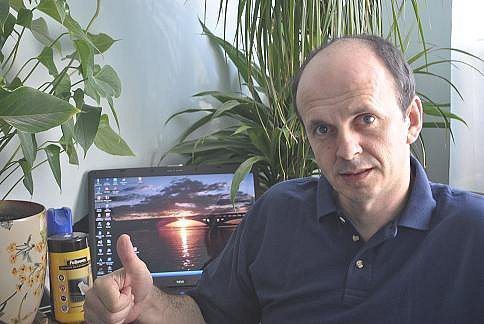
Transcarpathian Rusin Leader ‘Does Not Exclude’ Using Force Against Kyiv
Publication: Eurasia Daily Monitor Volume: 11 Issue: 109
By:

Most Ukrainians and international observers are focusing on Russia’s invasion of southeastern Ukraine or on the possibility that Moscow will use forces from Moldova’s Transnistria to create a “Novorossiya” (“New Russia”) across southern Ukraine and eliminate Kyiv’s access to the Black Sea (see EDM, April 8, May 23, 25). But yet another Moscow-provoked hotspot is brewing in a far western portion of Ukraine, the territory of the Transcarpathian Rusins, whose leaders are refusing to rule out using force against Kyiv from that direction.
Petr Getsko, the self-proclaimed prime minister of the self-proclaimed Transcarpathina Rus Republic, argues that his republic was originally formed in 1938 and was only restored in 2008, and he says that the Rusins demand that Kyiv recognize their territory as a special self-administered region on the basis of an oblast referendum which took place in 1991. Up until now, he continued, Transcarpathian Rus had “tried to avoid using force to resolve the situation, “but now we do not exclude it” (pravda.ru, June 9).
Getsko said that if that happened, Kyiv would have only itself to blame for not making concessions and instead engaging it what he called “repressions.” But he added that at the present time, he has 3,000 armed men under his control who have “Kalashnikovs, grenade launchers and sniper rifles.” Getsko said his government had made plans to defend its lands and was also relying on a heavily armed population to back them up.
The Transcarpathian Rusin leader said that his people are relying on Hungary, which is speaking up for them in the European Union, on the Russian Federation, which has provided “informational support and is currently conducting talks with the Rusins, and on Europe itself, which depends on the gas that flows through pipelines passing across the Transcarpathian Rusin Republic. Europe would not want that flow to be disrupted by any violence, Getsko noted.
But of these three, Russia is far and away the most important ally of the Rusins, he argued, because it is insisting that Ukraine “at a minimum” become a federal state. If achieved, such a political outcome would be sufficient to meet Rusin demands. Indeed, he continued, his government has already put in place the structures that federalism would require, and the government’s increasing cooperation with Budapest, including roundtables “and other measures” is giving the Rusins confidence that they can run their own affairs if Kyiv meets their demands. One indication of Transcarpathia’s relations with Hungary is that the border between them is now “open,” Getsko said.
Transcarpathia’s predominantly agricultural economy has been in deep recession since late Soviet times, and more than 450,000 of its 720,000 residents now live and work abroad, with approximately 120,000 of those in the Russian Federation and 100,000 in the Czech Republic. Getsko blames this situation on privatization and the end of the Soviet-era collective farms but says that he and his colleagues have a plan that would allow them to rebuild their territory without any outside loans.
To do so, he said, would only require that Transcarpathia be given the transit fees for gas passing across its territory, fees that now go directly to Kyiv. If that were to happen, Getsko claimed, “we could completely re-establish the infrastructure” needed for economic recovery. To make that possible, he continued, a Transcarpathian state within Ukraine or on its own would nationalize the pipeline and restore “state property” in other sectors as well. In short, it would return the region to conditions like those in Soviet times.
The reason the Transcarpathians have not been more active until now, is that as long as Viktor Yanukovich was president of Ukraine, most of them recognized the national and regional government as legitimate. “But after the coup, when the putschists [sic] seized power” in Kyiv, “the oblast authorities also ceased to be legitimate,” Getsko said. And consequently, the Rusins now feel that they must take control of their own fate. “Now,” he continued, “we will not stop and are ready for any development of events,” including a violent one if there is no other way.
Given what Kyiv is doing in the east and what Moscow is saying, such violence appears ever more likely, Getsko said, and “the main hopes” of the Rusins are linked to Russia.” If the Rusins did act as Moscow’s clients in Donetsk and Luhansk, that would force Kyiv to fight on two fronts at once, an especially difficult task, particularly if the Rusins acted in conjunction with forces from Transnistria in Moldova.
And the Rusin threat to hold Europe hostage on energy deliveries by disrupting the westward flow of gas across its territory also means that a Rusin rising, backed by Russia, could deepen divisions between Europe and the United States, a core part of Vladimir Putin’s agenda and yet another reason why a little-known group in Eastern Europe may soon become crucially important.




